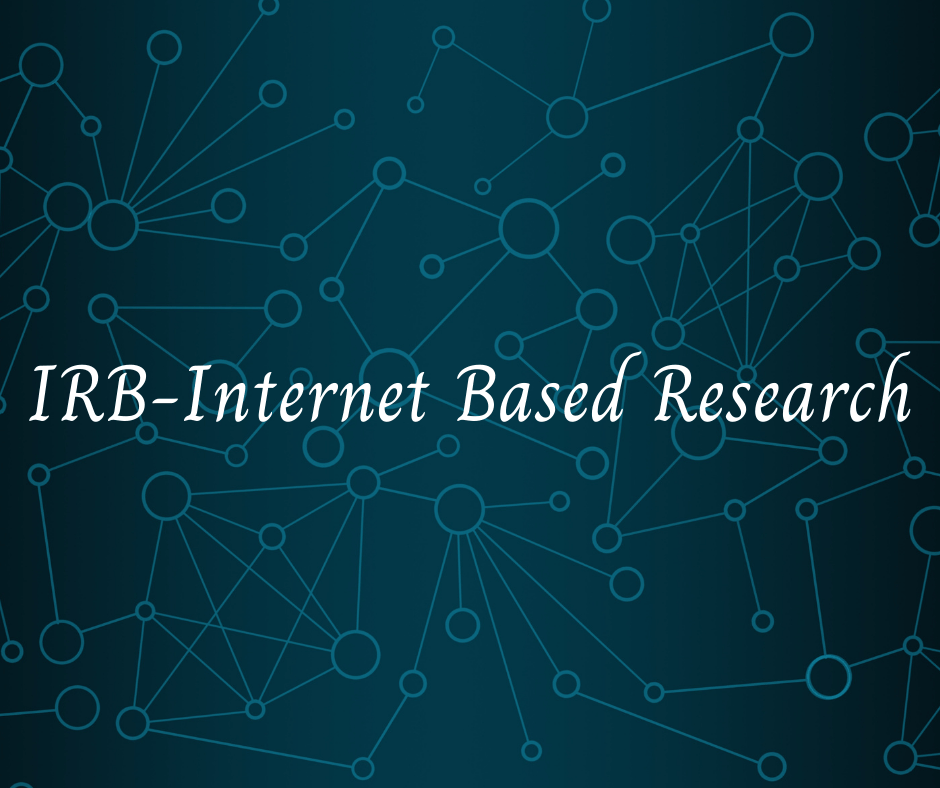IRB-Internet Based Research

With the rise in popularity of the internet in the past 10 years, many researchers have had to adapt. In order to deal with the new challenges that come along with designing and running studies online. Issues, such as safeguarding private information or confirming adult status, become more difficult to address. It comes in an online format to which there is no straightforward solution.
There are two ways that researchers can utilize the internet. Firstly, as a tool to conduct research, sometimes with little to no interaction with the participant. This can be in the form of surveys or observing individuals interact online. Secondly, the internet can use as an environment to study human behavior. Such as using information found on social media sites or online communities. This can be tricky, however, since some online communities use avatars, or characters that represent real world users. Gaining information from these avatars can be misleading, as it is understood that these characters do not reflect the real-world characteristics of the participant.
While the internet can be a useful tool, privacy and confidentiality become more difficult to safeguard online. For example, private information on the internet could define if the researcher must log onto a site to access it, whereas if the account can access without logging in it can consider public information. However, some sites allow individuals to access some information for a limited amount of time. Additionally, participants may believe that their information on the internet is more private than it really is. These complications work to further muddy the water on what is seen as private on the internet.
Need assistance with your research?
Schedule a time to speak with an expert using the link below.
Protecting confidentiality is another issue that arises in internet research. Because of re-identification, or de-identified data can trace back to a certain individual based on the information in the study. For example, participants IP addresses might trace, or data stored on the cloud can hack. While some survey sites, such as Qualtrics, offer the option to obtain data without an IP address, data must appropriately safeguarded to avoid breaches in confidentiality and privacy. These safeguards include encrypting data, storing the data in a safe, secure space, and describing the risks to the participants in a consent form.

We work with graduate students every day and know what it takes to get your research approved.
- Address committee feedback
- Roadmap to completion
- Understand your needs and timeframe

If you’re like others, you’ve invested a lot of time and money developing your dissertation or project research. Finish strong by learning how our dissertation specialists support your efforts to cross the finish line.